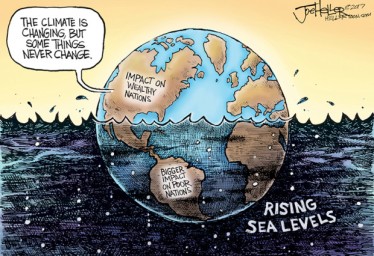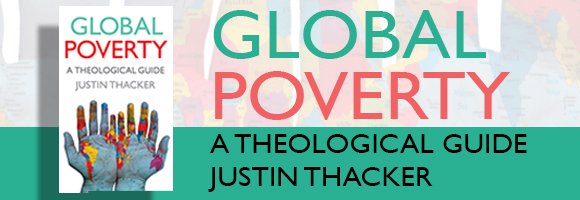Environmental Justice – why loving our neighbour is at the core of climate action
Earlier this month, the UK met office reported that British summers could be over 5oC warmer by 2070. This is just the latest in a series of climate predictions, coming on top of the most recent report from the Intergovernmental Panel on Climate Change which indicated the disastrous impact, and extreme likelihood of a global average increase of just 1.5 oC.
Sadly, the response to this news story by some seemed to be delight in the fact that the UK would now enjoy Mediterranean summers as if all that mattered was how likely it was that climate change would give us a tan! The sad truth is that repeatedly we fail to recognise the human impact of our warming planet. The Lancet, the UK’s premier medical journal, has called it “the biggest global health threat of the 21st Century”, bigger than cancer, bigger than heart disease, bigger than strokes. The reason they say this is because according to the World Health Organisation, Climate Change is likely to be responsible for approximately 250,000 extra deaths per year between 2030 and 2050. That amounts to 5 million people who will die who would not have died had there been no global warming.
This is why, for me, tackling climate change is not so much an issue of saving the planet, or looking after the polar bears, it is first and foremost an issue of justice, it is about loving my neighbour as I love myself. This is why when I teach on Climate Change at Cliff College I usually post a message on social media about how I’m heading in to the most important subject I ever cover at the College – and that remains my view.
The reason I say this is very simple: climate change kills the poor. In a wonderful piece of understatement, one health journal put it this way:
The rich will find their world to be more expensive, inconvenient, uncomfortable, disrupted and colourless; in general, more unpleasant and unpredictable, perhaps greatly so. The poor will die.
The reason for this is that Climate Change increases the risk of heatwaves – and as well as killing people directly, these lead to an increased chance of forest fires – increases the frequency and severity of floods and droughts, leads to crop failures and malnutrition, and increases the spread of mosquito borne diseases such as malaria. All of these effects are felt disproportionately by the poor.
If you’re flooded in the UK, it is an absolute tragedy but while your home might be devastated, it is very unlikely you’ll die as a result. If you’re flooded in Bangladesh, you could be killed directly in the flood waters, your home and therefore livelihood might be totally destroyed, your crops might fail and so you and your family will starve, and your sanitation system might be overwhelmed so that you’re now exposed to cholera. All of these mechanisms mean that at least 5 million people will die due to climate change over the next 30 years or so.
Yet what makes this a catastrophic tale of injustice is that while the poor are dying, it is the wealthiest parts of the world that have created the problem. Global CO2 emissions have not been driven by south-east Asia or sub-saharan Africa, but it is those parts of the world that will suffer the brunt of climate changes deaths.
In this context, James words to the church in Jerusalem sound a warning to all of us in the West:
Now listen, you rich people, weep and wail because of the misery that is coming on you. Your wealth has rotted, and moths have eaten your clothes. Your gold and silver are corroded…The cries of the harvesters have reached the ears of the Lord Almighty. You have lived on earth in luxury and self-indulgence. You have fattened yourselves in the day of slaughter. You have condemned and murdered the innocent one, who was not opposing you (James 5:1-6)
Fundamentally, I am passionate about climate change because I love people. I think future generations will look back on this issue in the same way we look back at the issue of slavery. We wonder how on earth Christians could have thought slavery was OK, and why for so long they did nothing to stop it; the same will be said of us. How on earth could we think contributing to the deaths of 5 million people around the planet is acceptable, and why were we so slow in addressing it? Tackling climate change is the single most important task facing the church today; it is up to us to play our part in addressing it.
